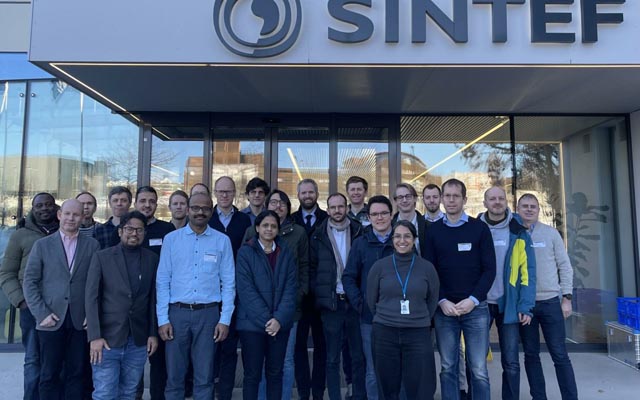A consortium of European partners, including marine energy storage system supplier Corvus Energy, has launched the EU Horizon DigiBatt Research Project – a significant initiative within research, battery cell manufacturing, testing and battery system providers, aimed at addressing the growing demand for batteries in Europe and the need for clean and sustainable energy solutions.
DigiBatt aims to reduce the cost and time to market for new batteries by combining traditional battery testing methods with state-of-the-art digital techniques. The project will first of all standardise, automate and accelerate the battery testing process by several novel approaches to develop:
- Standard semantic data models for battery testing, which can be read and understood by both humans and machines.
- A digital-twin infrastructure linking experimental testing rigs with simulation-based virtual testing workflows and allowing for automatic triggering of tests.
- Data-driven approaches to support the intelligent design of experiments and tailored testing workflows.
- Reliable new models for predicting battery lifetime and safety within system-level infrastructure.
These developments are expected to streamline testing workflows, enhance the quality of results, and make digital battery testing accessible to the broader battery community by developing open-source solutions. The project will contribute to establishing an advanced European battery value chain aligned with the broader eƯorts to meet increasing demand and gain energy independence for Europe. The results will help reach the ambitious goals of EU to become the world’s first climate-neutral continent by 2050.
Francesca Watson, Research Scientist at SINTEF and project coordinator, said: “The forecasted battery demand of 450 GWh in Europe by 2030 highlights the urgency and significance of initiatives to support the transition to a sustainable and low-emission future. The DigiBatt project will be a big step in the right direction as the potential for advances in battery testing and new digital tools is huge. By establishing a common way to describe and share all the data, we will get more learning from the data we already have. This will enable the DigiBatt project to develop more advanced simulation tools, more eƯicient testing as well as shorten the time for new battery developments.”
The DigiBatt consortium brings together world-leading institutions with the capacity to make the DigiBatt vision a reality: Sintef Research Institute (Coordinator) – DLR (German Aerospace Centre), Vrije University Brussels, Virtual Vehicle Research, Corvus Energy (battery system supplier), Forschungszentrum Juelich, AVL, Freyr (battery cell manufacturer) and the University of Oxford.
DigiBatt’s collaborative approach and its commitment to digital innovation means it will be crucial in advancing battery technology for the benefit of the European Union. The project will run until December 2026.
Image: Launch of EU DigiBatt project (source: Corvus Energy)



